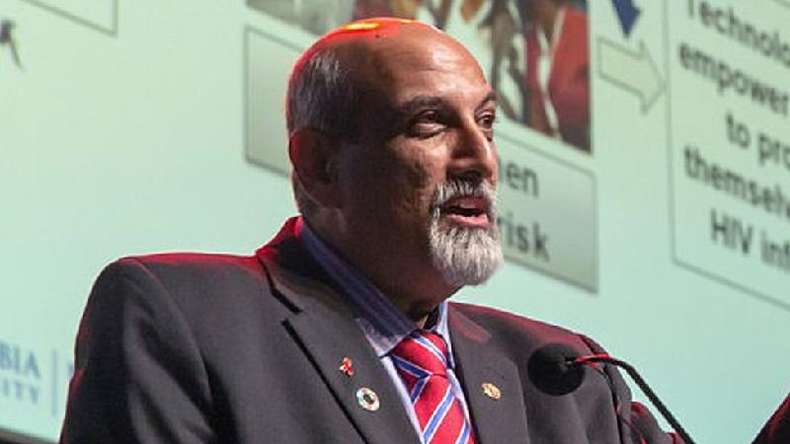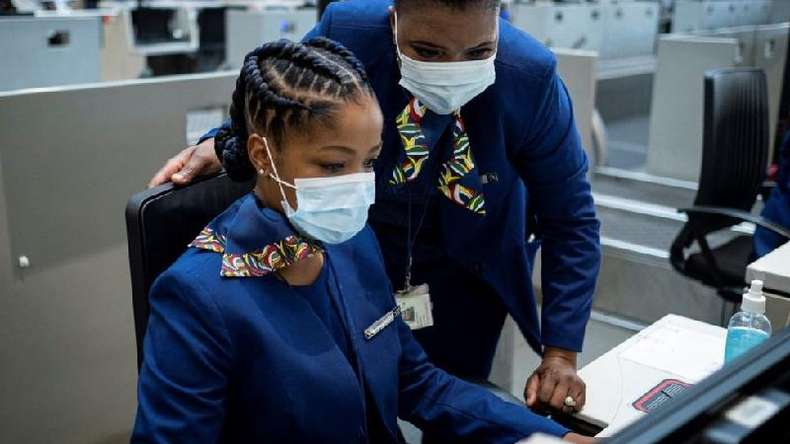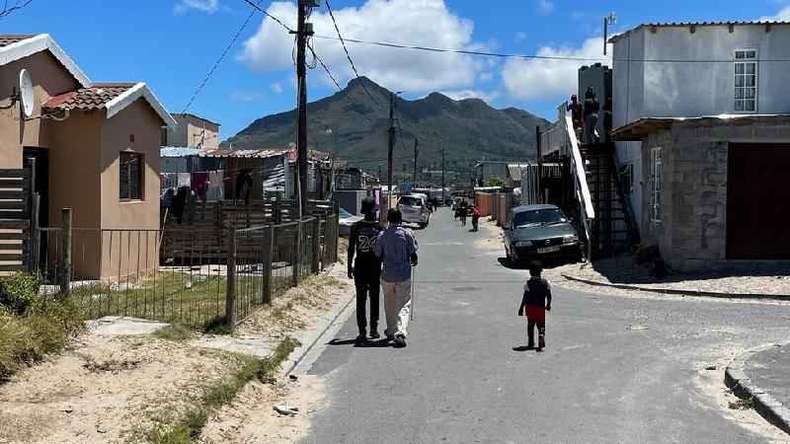
South African scientists – who have been hailed for their discovery of the micron – are investigating the “very plausible hypothesis” that the emergence of new variants of Covid-19 could be linked, in some cases, to mutations that occur within infected people whose immune system already exists. It has been weakened by other diseases such as untreated HIV.
Researchers have already noted that Covid-19 can persist for several months in patients with HIV, and that, for a variety of reasons, they are not taking the medications that would allow them to lead healthy lives.
“Usually, your immune system clears the virus quickly, if it’s working at full capacity,” says Professor Linda Gayle Becker, who runs the Desmond Tutu HIV Foundation in Cape Town.
“In someone with suppressed immunity, we see the virus persisting. And it doesn’t stay dormant, it multiplies. And as it reproduces, it probably mutates. And in someone who is immunosuppressed, that virus may be able to persist in many people. Months — have a mutation. “.
But as they advance their research, scientists are eager to avoid further stigmatization of people living with HIV, both in South Africa – home to the world’s largest HIV epidemic – and globally.
“It is important to emphasize that people who take antiretroviral drugs regain their immunity,” Becker says.
Two cases of particular interest have already been detected in South African hospitals. One woman’s case of Covid-19 lasted for nearly eight months earlier this year, while the virus underwent more than 30 genetic changes.
Brazilian Teleo de Oliveira, who heads the team that confirmed Micron’s discovery, notes that “10 to 15” similar cases have been found in other parts of the world, including the United Kingdom.
“It’s a very rare event,” he says. “But a plausible explanation is that immunosuppressed individuals … could essentially be a source of virus development.”

South African scientists have faced criticism – and even death threats on social media – after their recent discovery of the micron variant sparked a controversial and economically harmful express travel ban in Western countries.
They do not want their country or continent to be seen as fertile ground for new changes.
Professor Salim Karim, a leading expert in the field of HIV and former chair of the South African government’s Covid-19 advisory committee, says the link between immunosuppressed patients and novel variants of the virus is a “very plausible hypothesis”.
“But that hasn’t been proven. We’ve seen five variants come from four different continents. So making Africa a scapegoat is simply outrageous.”
Scientists also note that there are many other causes, globally, that may lead to a weakened immune system in people.

The emergence of an alpha variant has been associated, for example, with a patient being treated for cancer in the United Kingdom.
“Diabetes, cancer, hunger, autoimmune diseases, chronic tuberculosis, obesity – we have a large number of people who are immunocompromised for other reasons,” says Professor Mark Mendelsohn, Head of the Department of Infectious Diseases at Cape Town’s Groote Schuur Hospital.
In South Africa, nearly 8 million people live with HIV, the virus that causes AIDS. But about a third of them do not take medication.
In Masiphumelele, a densely populated municipality sandwiched between rocky cliffs and the Atlantic Ocean, south of Cape Town, it is estimated that a quarter of the municipality’s adult population is infected with HIV.
“There are many problems. [pessoas] You don’t want to take the test. Some don’t care. There is a stigma surrounding HIV,” says community worker Asefi Nchungunchi, explaining why, despite a highly effective health programme, a significant number of people are not taking their prescribed medication.
Currently, there is no evidence of any of the worrisome Covid-19 variants emerging in Africa, although the sudden arrival of a transmissible variant such as Micron in South Africa has fueled speculation that it may be linked to someone with a compromised immune system.
Scientists who track the virus say they hope this concern about a possible link to HIV will spur greater global action at a time when, in some areas, the fight against HIV has been neglected by the pandemic.

“It’s a global problem – this need to understand how viral infections thrive in our global community,” Becker says. “The best resource we have (to address it) now is vaccination. This message needs to be said loud and clear.”
While Africa still lags behind the rest of the world in coronavirus vaccinations, South African researchers say it’s important to pay special attention to people with weakened immune systems, who may need four or even five booster doses of vaccines, resulting in adequate immune response.
“If we want to reduce the risks of new variants, we have to meet this challenge in all countries of the world. This is trying to ensure that immunocompromised individuals are fully vaccinated and have detectable immune responses to vaccines,” he explains.
Karim concludes, “If not, they should be given additional doses until they develop an immune response. This is our best protection against the possibility that people with compromised immune systems may develop variants.”
In Brazil, the Ministry of Health has just announced the application of the fourth dose for immunosuppressed patients.
Did you know that the BBC is also on Telegram? Subscribe in the channel.
You have seen our new videos on Youtube? Subscribe to our channel!
Read more about COVID-19
Check other relevant information about the epidemic caused by Sars-CoV-2 virus in Brazil and around the world. Texts, infographics and videos talk about symptomsAnd preventAnd Search e vaccination.

“Wannabe internet buff. Future teen idol. Hardcore zombie guru. Gamer. Avid creator. Entrepreneur. Bacon ninja.”

